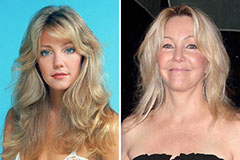Each yard rooster keeper has knowledgeable it: one day, your hens are laying reliably, and another, the nesting boxes are mysteriously empty. In line with Gail Damerow, renowned poultry pro and creator of Storey’s Guideline to Boosting Chickens, this egg-laying pause is commonly not a secret in the least. There are actually clear, natural reasons hens stop laying, and understanding them can help you aid your flock and restore efficiency. Here i will discuss Damerow’s top rated five factors hens stop laying—and what you are able to do about them.
1. Molting: A Natural Pause
As Damerow clarifies, molting can be a yearly event in a very hen’s daily life, normally occurring in late summer months to early drop. Throughout this time, hens reduce and regrow feathers—a course of action that requires a huge level of energy and protein. Egg generation frequently stops all through this period, given that the hen's entire body focuses solely on feather regeneration.
What You Can Do: Guidance your hens having a significant-protein feed or snacks like mealworms and scrambled eggs. Stay away from stressing the flock and Permit nature get its class. After the molt is finish, egg-laying should slowly resume.
two. Shortened Daylight Several hours
Light exposure plays an important job in stimulating a hen’s reproductive method. Damerow factors out that hens will need fourteen–sixteen hours of daylight for steady laying. As daylight decreases in the fall and Winter season months, so does egg generation.
What You are able to do: Think about including a light-weight supply from the coop which has a timer to simulate natural daylight. A reduced-wattage bulb turning on inside the early morning can securely lengthen "daylight" and assist Winter season laying. Keep away from sudden lighting adjustments That may anxiety your birds.
3. Bad Nutrition
Nourishment is foundational to egg output. Damerow warns that feeding chickens a food plan missing in protein, calcium, or necessary nutritional vitamins may lead to less or no eggs. Treats and scratch grains, although enjoyable, can dilute the well balanced nourishment supplied by commercial layer feed.
What You are able to do: Assure your flock has frequent entry to higher-quality layer feed, clean up drinking water, and calcium dietary supplements like crushed oyster shell. Restrict treats to no more than ten% in their every day diet.
four. Tension and Environmental Factors
Strain is A significant contributor to lessened egg creation. In accordance with Damerow, stressors can include predator threats, overcrowding, bullying, Serious temperatures, and even going the coop. Hens are sensitive to vary and can respond by halting egg production.
What You Can Do: Make a relaxed, Harmless surroundings for your birds. Keep consistent routines, give enough Area, and tackle resources of tension for example loud noises or intense flockmates.
5. Age and Health problems
Damerow reminds us that laying just isn't a lifelong endeavor. Most hens start laying all around five–six months of age, peak at about one–two a long time, and afterwards gradually slow down. Disease, parasites, and reproductive challenges can also interfere with laying.
What You Can Do: Keep watch over your hens’ Total health and fitness. Perform normal parasite checks, sustain a clear coop, and talk to a vet for those who notice indications of illness. Older hens should be valuable members of the flock even when their laying days are behind them.
Final Views
As Gail Damerow normally suggests, “Chickens don’t just prevent laying for no rationale.” In the event your hens have a split, it’s their method of signaling that one thing in their atmosphere or biology has shifted. With a bit of observation, good treatment, and many persistence, you might Fun88 Casino help guide your flock again to nutritious egg creation—or simply respect the pure rhythms of their life.
 Ross Bagley Then & Now!
Ross Bagley Then & Now! Amanda Bearse Then & Now!
Amanda Bearse Then & Now! Heather Locklear Then & Now!
Heather Locklear Then & Now! Lucy Lawless Then & Now!
Lucy Lawless Then & Now! Stephen Hawking Then & Now!
Stephen Hawking Then & Now!